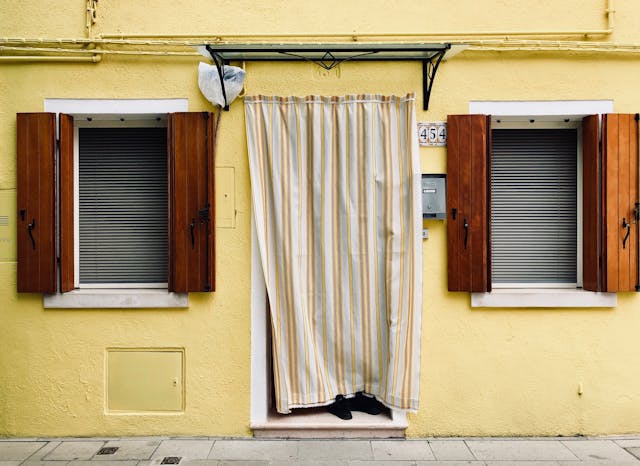Italy, with its exquisite landscapes, rich history, and charming culture, has long been a coveted location for property buyers. Whether you’re looking for a vacation home in Tuscany, a chic apartment in Milan, or a serene escape in the Italian countryside, buying a property in Italy is both an exciting and strategic investment. This guide is designed to walk you through the process, while ensuring your experience is informed, manageable, and rewarding.
Why Buy Property in Italy?
Italy’s appeal as a destination goes beyond its picturesque sceneries. Here’s why purchasing property here could be a life-changing decision:
- Cultural Heritage: Every property in Italy carries a piece of its rich history and vibrant culture.
- Investment Potential: The Italian real estate market offers opportunities for value growth over time, especially in touristic or historically significant regions.
- Affordability: Compared to other European countries, property in Italy can be surprisingly affordable, particularly in rural and southern areas.
- Lifestyle: Experience la dolce vita with Italy’s renowned cuisine, wine, and laid-back pace of life.
Understanding the Italian Property Market
Italy’s property market is diverse, catering to a variety of tastes and budgets. Here’s a quick overview:
- Popular Regions:
- Tuscany: Famous for rolling hills, vineyards, and luxurious countryside villas.
- Lombardy: Home to Milan’s cosmopolitan charm and Lake Como’s beauty.
- Sicily and Puglia: Known for affordability and authentic Mediterranean charm.
- Rome and Venice: Iconic cities steeped in history, offering prime properties.
- Types of Properties:
- Apartments in bustling cities.
- Rustic farmhouses in rural areas.
- Historical estates with renovation needs.
- Modern villas along Italy’s stunning coasts.
Step-by-Step Guide to Buying Property in Italy
Step 1: Research and Planning
Before you make any decisions:
- Define the purpose of your property purchase. Is it for personal use, rental income, or long-term investment?
- Determine your budget, factoring in purchase costs like taxes, agency fees, and renovations if needed.
- Research extensively about desired locations and property types.
Step 2: Understand Legal Frameworks
Italy’s property purchase laws are structured but can seem complex to foreign buyers. Here’s what you need to know:
- Non-residents can buy property in Italy. However, regulations differ based on reciprocal agreements between Italy and your home country.
- Expect necessary formalities such as obtaining a tax identification code (Codice Fiscale) and opening an Italian bank account.
Step 3: Work with Professionals
Navigating the property market smoothly requires an experienced team:
- Real Estate Agent (Agente Immobiliare):
- Helps you locate suitable properties and negotiates terms.
- Registered agents ensure trust and credibility.
- Notary (Notaio):
- Essential for verifying documents and sealing property transactions.
- Acts as an impartial figure ensuring the legality of your purchase.
- Legal Advisor:
-
- Provides translations.
- Ensures contracts comply with Italian and international laws.
Step 4: Property Viewings and Offers
- Visit properties in person or through virtual tours.
- Make offers based on the property’s listing price and negotiations with the seller. Written offers, known as Proposta d’Acquisto, are generally required to proceed.
Step 5: Due Diligence
Never skip the due diligence process:
- Ensure the property has no outstanding debts.
- Verify property boundaries, zoning regulations, and structural conditions.
Step 6: Finalizing the Purchase
Once due diligence has been completed:
- Sign a preliminary contract (Compromesso), often with a deposit of 10–30% of the property price.
- Complete the purchase with the final deed (Rogito), officially transferring the property into your name.
Costs and Taxes to Consider
Buying a property in Italy involves more than just the listed price. Be prepared for:
- Taxes:
- Registration tax (~2% for first homes, ~9% for second homes).
- Land registry tax.
- Professional Fees:
- Notary and legal fees.
- Real estate agent commission (often split between buyer and seller).
- Maintenance:
-
- Regular costs like utilities, repairs, and community fees (if applicable).
Insider Tips for a Smooth Property Purchase
- Language Barrier:
While many professionals in tourist-heavy areas speak English, it’s beneficial to learn some basic Italian or hire a translator.
- Renovations:
Older properties often need restoration, which could lead to extra costs. Factor this into your budget early on.
- Financing Options:
Some Italian banks offer mortgages to foreign buyers. Having a stable financial standing and necessary documentation improves your chances of approval.
- Regional Expertise:
Each region has its nuances. Partner with agents who specialize in areas you’re interested in.
Resources for buying property in Italy
Check out the following resources for more information about tourism, taxes, immigration, and other concerns.
- U.S. State Department Travel Information for Italy
- U.S. Internal Revenue Service
- Official Italian Immigration Website
- Italian Revenue Agency
- RE/MAX Italy
- Coldwell Banker Italy
FAQs on Buying Property in Italy
1. Can I buy property in Italy without being a resident?
Yes, non-residents can buy property in Italy. However, check for reciprocal agreements between Italy and your home country.
2. How much are legal and notary fees?
Legal and notary fees generally amount to 1–2% of the property price.
3. What type of taxes will I pay?
Taxes include registration tax, land registry tax, and mortgage tax (if applicable). These costs range from 2–9% depending on the type of property and your residency status.
4. Are there restrictions on the type of property foreign buyers can purchase?
No, you can purchase apartments, villas, or even commercial properties. Special permissions may apply if the property is in protected areas.
5. Should I consider renovating older properties?
Absolutely! Renovating properties in Italy can be a fulfilling experience. However, ensure costs, permits, and timelines are manageable.
Your Italian Dream Awaits
Italy’s allure lies in its blend of historical charm, natural beauty, and cultural vibrancy. By following these steps, you’re setting yourself up for a fulfilling and seamless property purchase experience. Whether you’re sipping wine in your Tuscan villa or soaking in the coastal views of Sicily, your new Italian home could be just around the corner.

